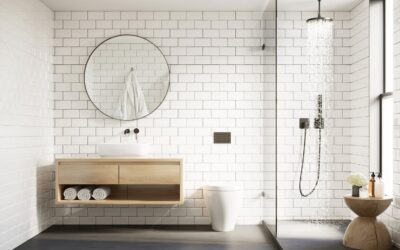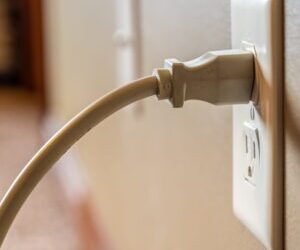Finishing your basement is one of the most rewarding home remodeling projects you can complete. A basement finish is more than just a recent trend, it can also add value and practicality to your home. New living spaces, added bedrooms, or even a self-contained apartment… your options are only limited by your budget and creativity.
But, keep in mind that there are common mistakes made in basement finishing projects. Some homeowners rush the planning phase and end up having to go back and make improvements at added expense. You can avoid common mistakes by learning about them here, helping you to plan a better basement that lives up to your initial concept.
Forgetting About Your Basement Finishing Utilities
In an effort to make their basements beautiful and streamlined, some homeowners will push ahead with aggressive designs that block off utilities like air conditioning, laundry appliances, and water heaters etc.
This is one of the worst mistakes that could be made in a basement finishing project. If you don’t leave enough space to access utility appliances, you’ll find that general maintenance can become a chore. It’s recommended to leave floor space of at least 4ft. around your appliances. If you enclose them in a small room, ensure that there’s enough access to remove and replace appliances in the future.
If your utilities simply don’t work with the design that you have in your mind, then you could consider relocating them. This could introduce additional cost into your basement finishing project (especially if plumbing or ducting is involved), but it could be worth it if the results add more value and practicality to your home.
Choosing the Wrong Materials
Your basement is just like any other large room in your home… right? Actually, it’s not quite that simple. Your basement is considered below-grade and that means that you’ll need to choose slightly different materials to what you would use throughout the rest of your home.
Insulation is a perfect example. Fiberglass insulation bats might be perfect for other areas of your home, but in the basement, this type of insulation could promote mold growth by trapping moisture. Instead, you’ll want to go with materials like foam board insulation, or spray foam that expands and fills cavities.
Drywall is another material that some homeowners get wrong. Even fully finished basements are exposed to more moisture than other areas of the average home. You’ll need to use a rated below-grade drywall to avoid mold growth.
Installing Hardwood Flooring in a Basement
Back on the topic of moisture, let’s talk about your flooring. You might want to go all out with a luxurious basement that matches the rest of your home. Maybe you’ve even considered hardwood flooring for its premium look and feel.
Hardwood flooring is arguably the worst material that you could use to finish your basement. The expense of hardwood flooring means that in the event of a leak, flooding, or moisture entry, you’ll be left with a severely damaged floor and an expensive repair bill.
Choose laminate wood flooring panels if you want the look and feel of hardwood. Engineered wood is much better at tolerating moisture. You could also choose synthetic fiber carpets which will resist moisture and mold.
Plan Your basement Finish Around Comfort and Practicality
When you design your basement, always keep function and comfort in mind. The space should be livable, and it should give you something that your home is missing.
Taking special care to choose the right materials and layouts will ensure that you can enjoy your finished basement for the lifetime of your home.
If you’re ready to move ahead with a basement finish or any other home remodeling project, you can get expert planning and design from HomeWorx Iowa. We’ll ensure you avoid the common mistakes and pitfalls, leaving you with a completed project that exceeds your expectations.
With an end-to-end service that includes installation and project management, you can get the basement of your dreams without any of the stress or uncertainty that comes from doing it yourself.



0 Comments